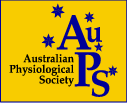
Livia Hool completed her PhD in cellular electrophysiology at Royal North Shore Hospital, Sydney in 1995. She then undertook 2 years postdoctoral research as recipient of an American Heart Association Postdoctoral Fellowship in the School of Medicine, Case Western Reserve University, Cleveland, Ohio. In 1998 she was awarded a Peter Doherty Fellowship from NHMRC and relocated to The University of Western Australia where she established the Cardiovascular Electrophysiology Laboratory in the Physiology Department. She has received continuous national competitive funding since establishing the laboratory and previously held a NHMRC Career Development Award and an ARC Future Fellowship. She is currently recipient of an NHMRC Senior Research Fellowship, Faculty-at-Large of the Victor Chang Cardiac Research Institute in Sydney, President of the International Society for Heart Research Australasian Section and Founding Director and General Secretary of the Australian Cardiovascular Alliance. The work of her laboratory is concerned with understanding the role that the L-type Ca2+ channel plays in mediating alterations in calcium and metabolic activity in the heart leading to sudden cardiac death and heart failure. This is studied at the level of purified channel protein, the single cell, the whole heart ex vivo and in murine models of cardiomyopathy strategically directed towards building basic knowledge, method development, discovery, and translation.
Abstract coming soon
Walter Boron is the David N. and Inez Myers/Antonio Scarpa Professor & Chairman of the Department of Physiology and Biophysics in the School of Medicine at Case Western Reserve University.
Walter completed his MD and PhD in the Department of Physiology and Biophysics at Washington University. He was appointed as a postdoctoral Fellow at Yale University School of Medicine where he joined the academic staff in 1980 rising to Professor (1987) and Chair (1989) of the Department of Cellular and Molecular Physiology at Yale, before being appointed to his current position at Case Western in 2007. Walter's research focus is in pH regulation and gas and ion transport in renal epithelia and brain, and with his collaborators have contributed significant discoveries in these areas. In recognition of these achievements he has been honoured with numerous awards including the Homer Smith Award from the American Society of Nephrology (2005), election to the National Academy of Medicine (2014), election as President (1999-2000) and Fellow (2015) of the American Physiology Society and recently (2010-2017) served as the Secretary-General of the International Union of Physiological Sciences. Walter has also had a distinguished career as a Physiology educator, most notably as contributing author and Co-Editor (with Emile Boulpaep) of Medical Physiology. A Cellular and Molecular Approach (Elsevier), now in its 3rd Edition.
A/Prof Glenn Wadley was awarded the Michael Roberts Excellence in Physiology Education Award at the AuPS 2017 Scientific Meeting.
A/Prof Glenn Wadley completed his PhD in exercise physiology at Deakin University in 2004. From 2004-2009 he held a full-time postdoctoral position that was funded by NHMRC project grants in the Department of Physiology at The University of Melbourne. In April 2009, he was appointed as a full-time research and teaching academic in the School of Exercise and Nutrition Sciences (SENS)at Deakin University. He teaches undergraduate exercise physiology and metabolism and has implemented active learning approaches to improve student learning and engagement. He has also held teaching and leadership roles in research training (Faculty of Health Honours Course Director 2011-2015; SENS PhD Coordinator 2016-2017). In 2018 he was appointed associate Head of School (Research). He was recognized in 2016 with an Australian Award for University Teaching - Citation for Outstanding Contributions to Student Learning.
He is an exercise physiologist with 20 years' experience investigating the impact of exercise and nutritional interventions on glucose metabolism and more recently on cardiac growth. His research utilizes both human and animal models to investigate molecular mechanisms and whole-body physiology with clinically relevant health outcomes.